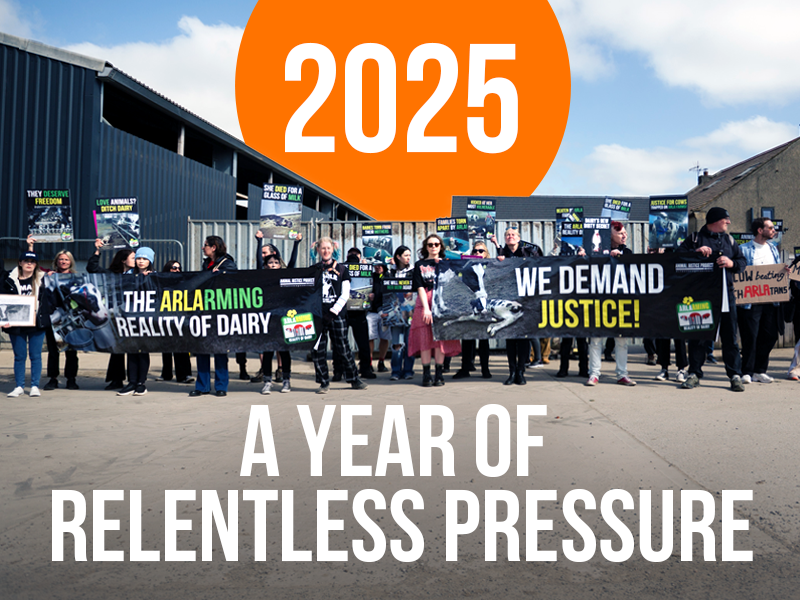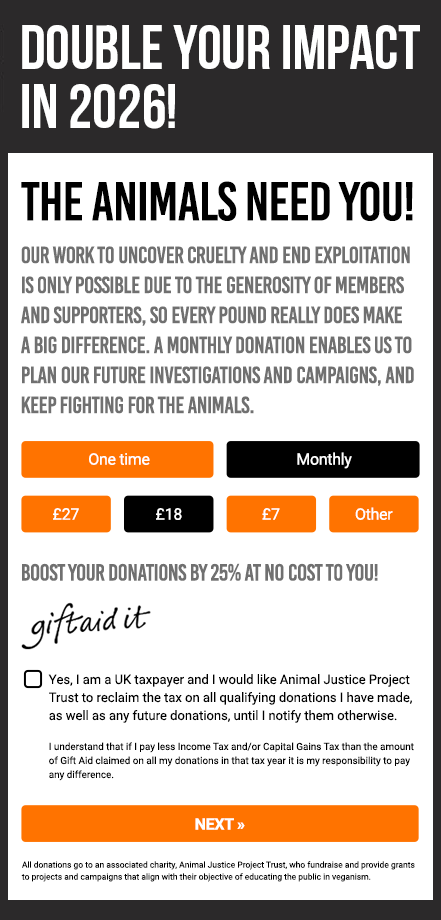
General
The Global Methane Pledge & the Cow in the Room at COP26

With COP26 firmly behind us, many people are trying to get a sense of what was accomplished and whether the conference was a “success”. But there are many metrics of success, and not everyone who attended the conference necessarily shared the same goal. The presidents of the UK’s four major farming unions were all in attendance, as were others from their organisations, and based on their messaging, it would seem that one of their aims was to downplay the degree to which British agriculture contributes to climate change – and here they may indeed have found success.
In a video address from the conference, Minette Batters, president of the National Farmers’ Union (NFU) bemoaned the fact that animal agriculture has been put under the media spotlight during the proceedings, saying:
“It’s always frustrating about how these things are portrayed in the media. It’s frustrating for me to see that the situation on the global methane commitment has very much been focused on livestock, which is of course fundamentally wrong – that is a small part of global methane commitment.”
She is of course quite right in saying that plans to reduce emissions from livestock form only a small part of the global methane commitment agreed upon at the conference. However, enteric fermentation from livestock is responsible for a significant portion of total global methane emissions (approximately 30%). Hence, the perception that the livestock sector’s contribution to the problem is not proportional to its allotted responsibility for solving it is perhaps the reason behind the media scrutiny she so laments.
Enteric fermentation from livestock is responsible for an even greater share (approximately 42%) of the UK’s methane emissions, a situation which shows little sign of changing. According to the UK’s National Atmospheric Emissions Inventory, thirty years ago, the top three sources of methane emissions in the UK were: “Waste” (methane seeping out of landfill sites), “Fugitive emissions” from the energy sector (gas leaks in distribution networks), and “enteric fermentation” (cows and sheep expelling methane).

However, since the 1990s, the UK has taken clear action in two out of three of these areas, reducing the amount of waste disposed of, and implementing methane-recovery systems at landfill sites, as well as repairing and improving gas distribution infrastructure. As a result of these measures, methane emissions from waste (landfill) were reduced by 72.5% between 1990 and 2019 and fugitive emissions from the energy sector were reduced by 85.2% over that same period. In comparison, emissions from enteric fermentation were only reduced by 13.5% (due to incidental drops in numbers of ruminant livestock). As a result, enteric fermentation is now responsible for the lion’s share of UK methane emissions, being by far the largest single source of emissions, and almost equalling the sum total of all other sources! Why then, has the livestock sector been overlooked by successive governments in their efforts to curb methane emissions?
Clues may be found by examining a recent controversy over proposed “methane fees” in the US. The Biden Administration’s Build Back Better Act sought to impose such fees on oil and gas companies in line with the amount of methane they emit. Extending this methane “tax” to the livestock sector was apparently considered by Congress, since Congressional committee staff tasked the American Farm Bureau (AFB) with calculating how such a tax would impact the industry. According to an AFB press release, they credit their analysis with helping convince Congress that the tax would have been devastating to livestock producers, and so, the Senate later passed an amendment to the Act prohibiting or limiting “any new Federal methane requirements on livestock that would increase the cost of beef”.
In other words, the idea was scrapped because it was recognised that livestock farmers produce too much methane to be held accountable for it. But aside from this highly ironic get-out clause, there seemed to be no appetite for imposing such a tax among politicians. Indeed, the Democratic senator who spoke in opposition to the amendment objected only on the grounds that the amendment wasn’t necessary, and that passing it would lend credence to the notion that the government had ever entertained levying such a tax in the first place:
“Let me be clear. Colleagues, let me be clear. Let me be clear. The EPA is not acting to regulate methane from cows or any other farm animals. […] The American people should rest assured that no one is focused on regulating cow emissions, as this amendment would suggest.”
[Source: Congressional Record].
Perhaps unsurprisingly, this reluctance to interfere too much with the interests of livestock farmers was also apparent at COP26. Over 100 countries have now signed on to the Global Methane Pledge, a pledge to cut methane emissions by at least 30% by 2030. However, critics claim that a 30% reduction doesn’t go far enough, and the scope for change is almost certainly narrowed by the fact that (as the pledge makes clear) world leaders will be “seeking abatement of agricultural emissions through technology innovation” rather than reductions in livestock numbers. Such pusillanimity may be partly attributable to the successes of farming interest groups, but it seems likely that many politicians are simply reluctant to take a firm stance on agricultural methane emissions lest they be accused of attempting to (indirectly) dictate what people eat.
What’s clear is that we can little afford such timidity from our leaders. If ever there was a time for radical action, this was it! That’s why we continue to urge our supporters to back the Plant Based Treaty initiative. The Plant Based Treaty outlines a set of desperately needed (though perhaps not politically convenient) practical steps that governments could take to halt the destruction of natural ecosystems for animal agriculture, and reduce greenhouse gas emissions. It includes commitments such as ending the clearing of forests for animal grazing or animal feed production, and transitioning to plant-based meal options in schools, hospitals and other government institutions. We can no longer ignore the cow in the room, we need a radical overhaul of our food system, and we need it now!
Thank you for your continued support!
As always,
For the animals.
– David Oates

.png)


.png)













.png)